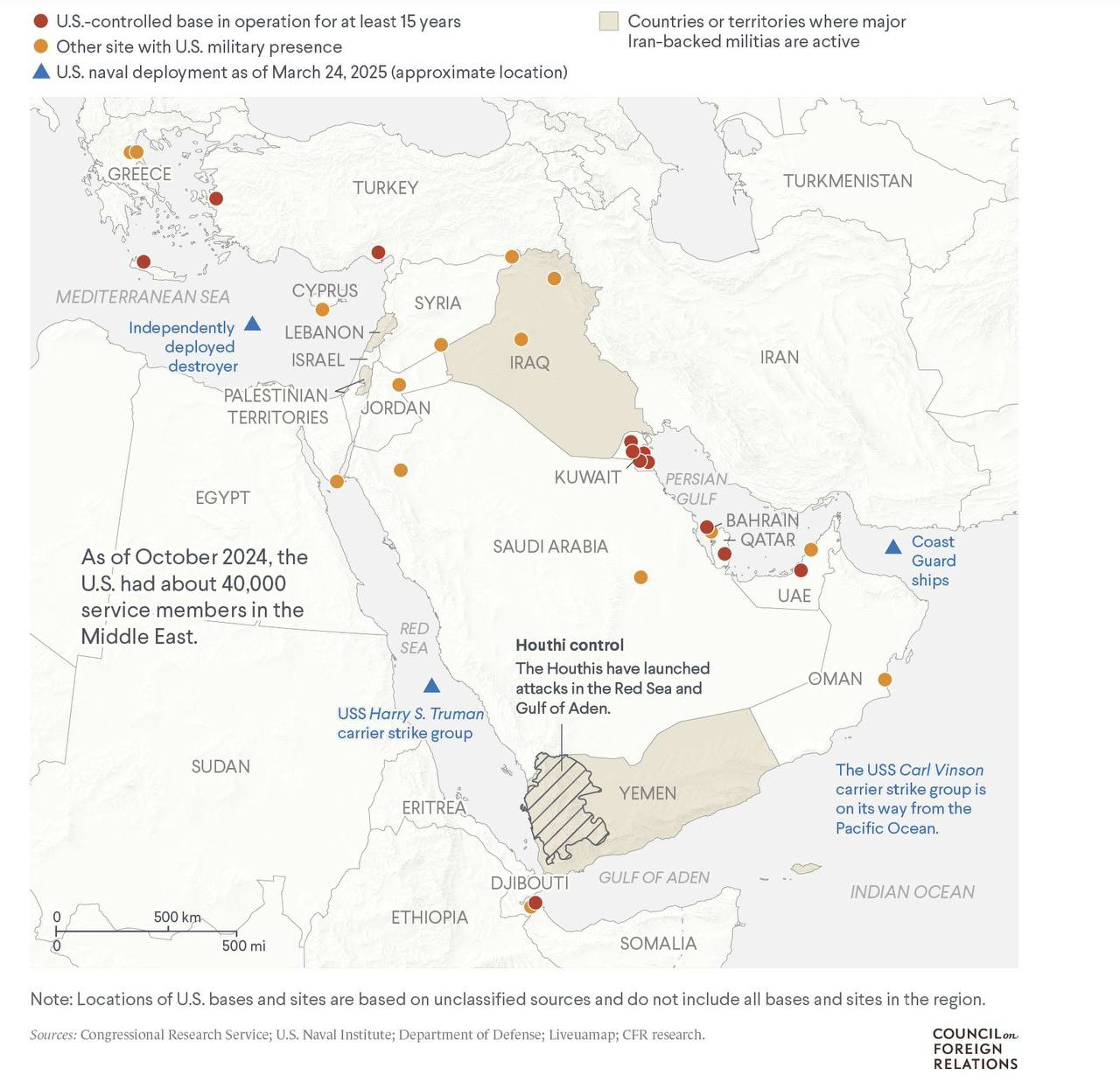The Red Sea Arena and the Coming Geopolitical Realignment in the Horn of Africa
As the world watches the increasingly apocalyptic scenes of missile exchanges between Israel and Iran, it is essential to look beyond the direct battlefield and consider the broader geopolitical chessboard. One critical but often underreported theatre in this evolving conflict is the Red Sea region, where the repercussions of the Middle East's shifting power dynamics echo into the Horn of Africa. The recent intensification of Houthi attacks, U.S. naval deployments, and the growing strategic importance of the Bab el-Mandeb Strait all point to one conclusion: the next front of the Israel-Iran conflict will be maritime—and it will draw in Eritrea, Ethiopia, and the wider Horn of Africa.
I. The Houthis and the Red Sea: A Strategic Headache for the West
The Houthi movement in Yemen, backed by Iran, has become a major disruptive force in the Red Sea and Gulf of Aden, launching missile and drone attacks on commercial and military vessels. As the map shows, Iranian-backed militias are active across Iraq, Syria, Lebanon, and Yemen, forming a strategic arc of influence that Iran can use to pressure the U.S. and its allies, particularly Israel. The Houthis' ability to threaten global shipping routes places them at the centre of international concern.
Yet despite Israel's sophisticated military capabilities and its ongoing conflict with Iran, it has not neutralised the Houthi threat, choosing instead to rely on U.S. naval power to secure Red Sea shipping lanes. This suggests that Israel is making calculated decisions, perhaps preserving political capital for a larger regional strategy.
II. Eritrea and Assab: The Geostrategic Prize
At the heart of that strategy may lie Eritrea, particularly the Assab port, located at a critical chokepoint between the Red Sea and the Gulf of Aden. Once an Ethiopian port, Assab has been under Eritrean control since independence. Ethiopia has been landlocked for years, relying on Djibouti for nearly all of its maritime trade.
A growing theory in regional circles posits that Israel (and the West) are supporting a future regime change in Eritrea—a country long seen as isolated and repressive under President Isaias Afwerki. Eritrea has historically maintained ambiguous relations with both Israel and Iran, but recently allowed the UAE and Saudi military use of its ports to counter the Houthis. If a new regime were installed, more aligned with U.S./Israeli interests, it could tilt the regional balance, provide a permanent friendly base on the Red Sea, and pave the way for Ethiopia to regain access to Assab.
This would reshape Ethiopian geopolitics and undercut Iran's maritime influence.
III. The Horn of Africa as a Proxy Arena
The Horn of Africa is no longer a peripheral space in global politics. With U.S. bases in Djibouti, military cooperation with Ethiopia, naval deployment in the Gulf of Aden, and the threat of Houthi attacks looming, this region has emerged as a strategic buffer zone between Middle Eastern conflicts and African stability.
Should a regime change occur in Eritrea, it will likely trigger a geopolitical domino effect:
Sudan, already in crisis, could see further destabilisation.
Somalia and Somaliland, already contested by Gulf rivals, could be drawn deeper into the Red Sea alliance race.
China has a naval base in Djibouti, and Russia, seeking greater African influence, will not sit by quietly.
IV. Ethiopia’s Strategic Calculus
Now diplomatically recovering from its civil war and engaging cautiously with Israel and the West, Ethiopia could be offered a major geopolitical incentive—access to Assab—in exchange for aligning more clearly with anti-Iranian interests. This would give Ethiopia a strategic outlet to the sea and the political leverage it needs to rise as a Red Sea power.
But this move comes with risk: it would draw Ethiopia into a larger proxy war, potentially exposing it to terrorist attacks, destabilising retaliation from neighbouring states, or even Iranian hybrid warfare via allied groups in the region.
Conclusion: A Storm Brewing Over the Red Sea
The Israel-Iran conflict is no longer confined to missiles and proxies in Lebanon and Gaza. The next battleground is maritime—the Red Sea, Bab el-Mandeb, and the ports of Eritrea and Yemen. As the U.S. and its allies—including Israel—seek to contain Iran’s regional influence, the Horn of Africa is emerging as a critical pivot zone. Regime change in Eritrea, naval realignment in the Red Sea, and Ethiopia’s potential return to the coast all point to a messy, high-stakes geopolitical transformation.
The Horn of Africa is no longer a spectator in Middle Eastern politics. It is becoming one of the central stages in a confrontation that will shape the future of the Red Sea and the global balance of power.

No comments:
Post a Comment